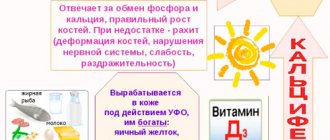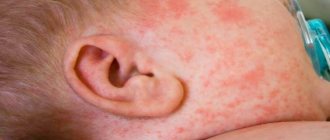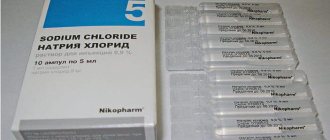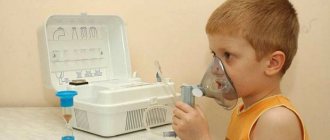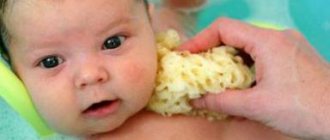The child's body urgently needs vitamin D, which regulates phosphorus and calcium metabolism and promotes the proper development of the organs of a small child. An allergy to Aquadetrim should not go unnoticed by parents. It is necessary to discontinue the drug and consult with your doctor to replace it with a safe analogue.
Characteristics of "Aquadetrim"
“Aquadetrim” is designed to catalyze all processes of a baby’s development. It has a positive effect on the formation of the baby’s nervous and cardiovascular system. The content of vitamin D3 in the preparation, especially in an aqueous solution, allows for preventive measures aimed at treating and preventing the occurrence of rickets.
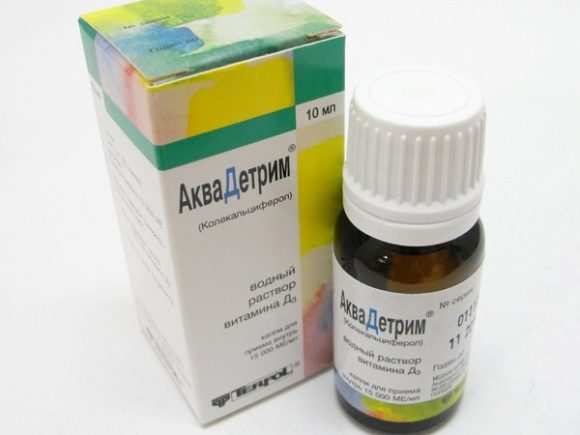
Suitable for children who were born prematurely. It is perfectly absorbed and has a very subtle aroma and taste of anise. "Aquadetrim" has its analogues:
- The drug is made in Norway - “Vigantol”.
It is produced in the form of a pancake solution and is aimed at eliminating the signs of rickets and preventing it. This drug increases the permeability of cell membranes and regulates transmembrane calcium metabolism.
- The drug "Osteokea".
Contains cholecalciferol. It is available not only in the form of a solution, but also in tablet form. The action of the drug is also aimed at covering the lack of vitamin D3 in the body.
Vitamin D free
Vitamin D for infants is a vital drug, so for children under one year old you can get free vitamin D in drops. At your next appointment, your pediatrician should write you a prescription, which you can use at the pharmacy.
However, for some reason, Russian doctors everywhere prescribe Aquadetrim - this is an aqueous solution of vitamin D, the effectiveness of which is lower than that of oil.
Which drug your baby should take should be discussed with a specialist (by the way, oil drops are used to treat rickets).
One of the drugs that doctors unconditionally trust is Devisol Drops - Finnish vitamin D in the form of an oil solution, and we will dwell on it in more detail.
Indications for use
"Aquadetrim" should be given, first of all, to cover the body's deficiency in vitamin D3. It is very often observed in infancy. The drug helps get rid of the rickets-like condition and rickets itself. If osteomalacia or metabolic osteopathy is observed, then Aquadetrim is also prescribed.

"Aquadetrim" has the ability to regulate the exchange of calcium and phosphorus in the body. It absorbs minerals that are in the intestines and removes them through the kidneys. As a result, the skeleton is saturated with minerals and its normal growth is ensured.
The drug is involved in the process of transporting salts and calcification of all bones, and perfectly maintains the tone of the skeletal muscles.
"Aquadetrim" is able to ensure uninterrupted functioning of the myocardium. It is necessary when there is a lack of sunlight. Especially during the growth period of the baby. You will also need to take the drug if there are disturbances in the absorption of nutrients from food.
Devisol Drops: contraindications
- Individual intolerance to components.
- Organic and functional disorders in the gastrointestinal tract.
- Diseases of the urinary system, renal failure.
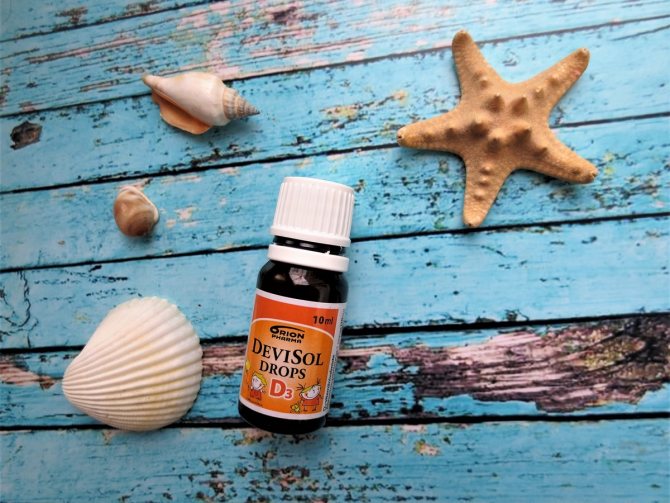
Finnish vitamin D instructions in Russian.
Which vitamin D to choose is up to you and your doctor. The main thing: do not neglect the advice of pediatricians and strictly follow the recommendations of a specialist.
Treatment
If “Aquadetrim” is used as a remedy, then in this case the drug is intended to improve the condition of the baby in the presence of certain types of diseases. For example, problems with the proper development of the musculoskeletal system. Typically, this condition manifests itself in the form of deformation of the bones of the legs or chest.

If a diagnosis of rickets is established, then Aquadetrim and its doses are prescribed exclusively by a doctor.
Overdose
When consuming large doses of the vitamin, the following occurs:
- Diarrhea
- Nausea
- Polyuria
- Intestinal colic
- Constant desire to drink and constipation
- Vomit
- Depression
- Muscle and joint pain
- Increased potassium loss
- Increased pressure
In special situations, overdose leads to:
- Stone formation
- Visual impairment
- Papilledema
- Calcification of tissues and organs
In case of overdose:
- You should stop taking the drug immediately
- Drink plenty of fluids
- If necessary, do not refuse hospitalization
Prevention
It is prescribed prophylactically to prevent the occurrence of osteoporosis and rickets. Most often, the medicine is used in the cold season, during the period when the baby may feel a lack of ultraviolet radiation. After the cold period, the drug is discontinued.
Aquadetrim is suitable if the child has soft bones and there is a possible risk of deformation of the bones or skull. It is recommended to use the drug if the child is bottle-fed. No formula can replace mother's milk. And it has a complete set of all the necessary vitamins and nutrients for the full development of the baby.
Admission rules
If Aquadetrim is used for a specific therapy, then the prescription is carried out only by a pediatrician. He must constantly monitor changes in the baby’s body in order to adjust the dosage.
Usually the drug is not given in its natural form. It must be diluted in a small amount of water or milk. The child may not like the anise taste of the drug, and he will refuse to take it.
You should start taking Aquadetrim with one drop. This will help determine if you are allergic to the drug. The next day, the dose is increased to two drops. On the third - up to three. "Aquadetrim" can be given both before and after meals.
Where is vitamin D found?
Vitamin D can be obtained from the following foods:
- sea fish;
- fish fat;
- chicken egg yolk;
- sour cream, butter, cream;
- walnuts, parsley, mushrooms.
Naturally, a baby is not allowed all of the listed products until at least 9 months, and with breast milk he receives only a small dose of the vitamin.
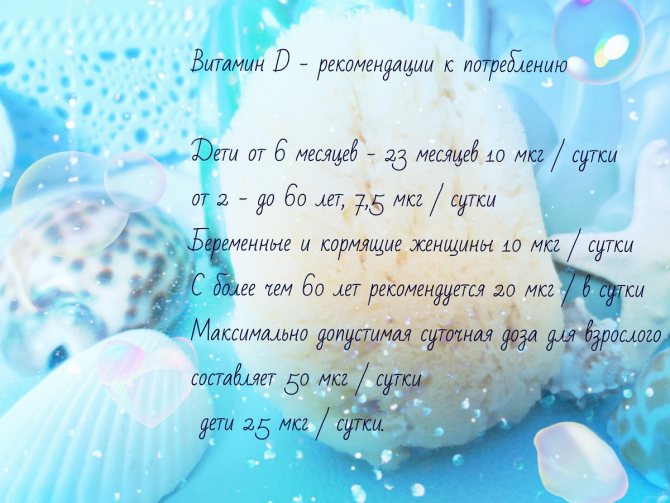
Devisol Drops instructions in Russian.
Features of reception in the autumn-winter period
As a rule, the drug is prescribed during a period when there is clearly a lack of sunlight. This is especially true for that part of our country where the climate is quite harsh. As a prophylactic measure, you can start taking the medicine in October and end in April. In northern latitudes, the drug is recommended to be given to children throughout the year, 1-3 drops daily.
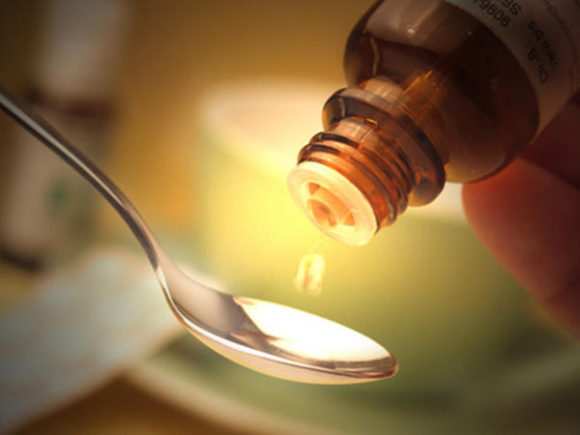
If the child is healthy, then as a preventative measure you should give him the drug one drop per day. For premature babies, the dose can be increased to three drops. A prophylactic dose of at least two drops per day is also recommended for twins.
For babies who are bottle-fed, the pediatrician should calculate the dose, since most formulas already contain vitamin D3.
Oversaturation of the body with this vitamin is dangerous, as is its deficiency.
Rickets and "Aquadetrim"
Rickets appears against the background of an insufficient amount of calcium in the body, and therefore its metabolism is disrupted. Vitamin D3 compensates for this deficiency, intestinal function improves, and calcium begins to be absorbed into the blood in the volumes required by the maturing body. The drug and its analogues help distribute mineral salts throughout all tissues, absorbing them into bone tissue. Simply put, if you establish all the processes described above, then the child will not be afraid of any rickets.
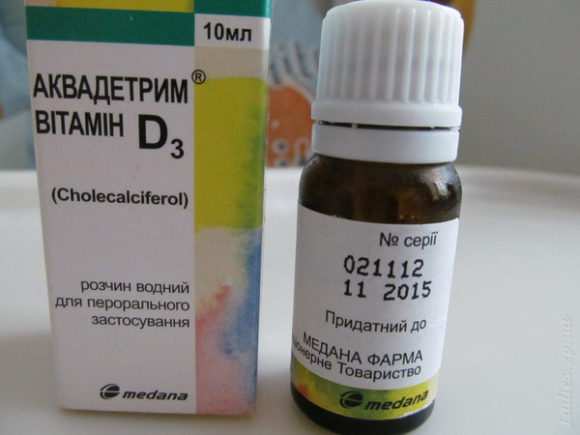
The dosage for the treatment of rickets is about 5 drops at a time, but in some cases 10 drops can be given. The prescription and dosage of the drug must be based on real diagnostic data and made by a doctor.
In any case, if a high dose is prescribed, then you need to start taking the medicine with 4 drops. They should be given for seven days, and only then increased to 5 drops. It is necessary to constantly monitor the baby's condition to understand that he tolerates the drug well.
The course of treatment can last up to one and a half months, then a break is necessarily taken, and, if necessary, the course of treatment is repeated.
Screening tests are taken throughout the course. They are done to determine the amount of phosphate and calcium in the body. It is also necessary to keep close control on the amount of alkaline phosphates. Interim tests make it possible to adjust the dosage to prevent side effects.
Side effects
Despite the enormous benefits of Aquadetrim for the baby’s body, sometimes side effects are observed when taking it. And most often, their cause is not vitamin D3 itself, but other components of the drug, such as flavorings and stabilizers.

Side effects manifest themselves in the form of diarrhea or rash on the skin. The baby may behave restlessly and sleep may be disturbed. Sometimes there is even vomiting; in very severe cases, kidney function is impaired.
First of all, if the baby is given an aqueous solution, it is recommended to replace it with an oil solution. Its composition is much more environmentally friendly and it contains fewer flavors. An allergy to Aquadetrim and its analogues in infants is also quite possible. Usually the baby develops redness all over the body, appetite decreases, and the tummy may swell. Along with constipation, diarrhea may also occur.
First of all, parents need to consult a doctor to make sure that they are allergic to the drug and stop taking it. Perhaps this is not an allergy to the drug, but the dosage was violated, that is, only a doctor should make an accurate diagnosis.
Symptoms:
Each child's dermatological manifestations are different and allergies may look different. The symptoms that most often occur in a reaction to this drug are:
- Dry, flaky, crusty skin, including on the scalp.
- Red spots, swelling, swelling, mostly occurring on the cheeks, tummy, buttocks and back.
- Rash and itching. The child's appetite and sleep are disturbed, he becomes restless due to the fact that the skin is inflamed and itchy. The rash looks like spots of different diameters, small blisters appear, around which there is red or pink skin.
Gastroenterological manifestations include the following symptoms:
- Poor appetite and frequent regurgitation.
- Sometimes vomiting, diarrhea, constipation, nausea, and dizziness occur.
- Colic in the tummy and flatulence.
The child also begins to refuse food and cry all the time. If Aquadetrim is not stopped in time, the baby may begin to lose weight, and dehydration often begins due to vomiting. These symptoms are accompanied by dermatological manifestations and are treated with drug withdrawal, antihistamines and local anti-inflammatory ointments.
